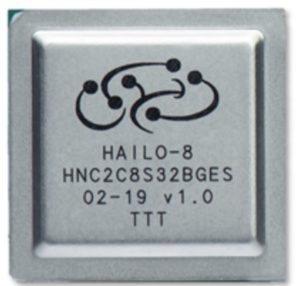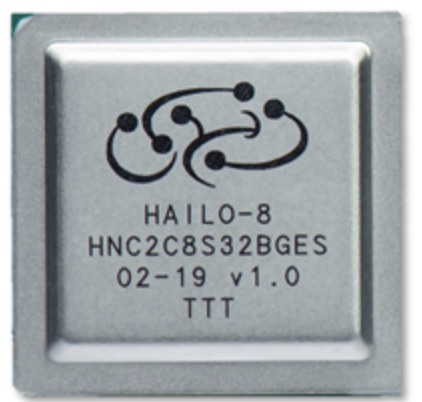 Today AI chipmaker Hailo announced the “world’s top performing deep learning processor.” The company is now sampling its breakthrough Hailo 8 chip with select partners across multiple industries, with a focus on automotive. The chip is built with an innovative architecture that enables edge devices to run sophisticated deep learning applications that could previously run only on the cloud.
Today AI chipmaker Hailo announced the “world’s top performing deep learning processor.” The company is now sampling its breakthrough Hailo 8 chip with select partners across multiple industries, with a focus on automotive. The chip is built with an innovative architecture that enables edge devices to run sophisticated deep learning applications that could previously run only on the cloud.
In recent years, we’ve witnessed an ever-growing list of applications unlocked by deep learning, which were made possible thanks to server-class GPUs,” said Orr Danon, CEO of Hailo. “However, as industries are increasingly powered and even upended by AI, there is a crucial need for an analogous architecture that replaces processors of the past, enabling deep learning to run devices at the edge. Hailo’s chip was designed from the ground up to do just that. We are excited to help customers drive their intelligent devices to new limits. A new age of chips means a new age of technology.”
According to Danon, key disadvantages exist in the current architecture of the embedded processing infrastructure, designed based on a 70-year-old underlying structure. Hailo addresses these issues with its holistic solution, which completely rethinks the existing pillars of computer architecture – memory, control, and compute – and incorporates a key, comprehensive Software Development Kit (SDK) co-developed with the hardware.
Hailo’s groundbreaking processor significantly outperforms all other edge processors with area and power efficiency far superior than other leading solutions by a considerable order of magnitude – all at a size smaller than a penny. By designing an architecture that relies on the core properties of neural networks, edge devices can now run deep learning applications at full scale more efficiently, effectively, and sustainably than traditional solutions, with lower costs.

ResNet-50 Benchmark. According to preliminary results comparing Hailo-8 to best-in-class devices running NN benchmarks such as ResNet-50, Hailo-8 consumes almost 20 times less power while performing the same tasks.
Hailo is working with leading OEMs and tier-1 automotive companies in fields such as advanced driver-assistance systems (ADAS), as well as players in industries like smart cities and smart homes, to empower smarter edge and IoT devices. These industries often require the use of high-performance cameras to perform tasks such as semantic segmentation and object detection in real time – tasks which Hailo’s chip can perform at full resolution, while consuming only a few Watts. Hailo’s redesign also solves untenable heat dissipation issues and removes the need for active cooling systems in the automotive industry. Its advanced structure translates to higher performance, lower power, and less latency, enabling more privacy and better reliability for smart devices operating at the edge.
Sign up for our insideHPC Newsletter




